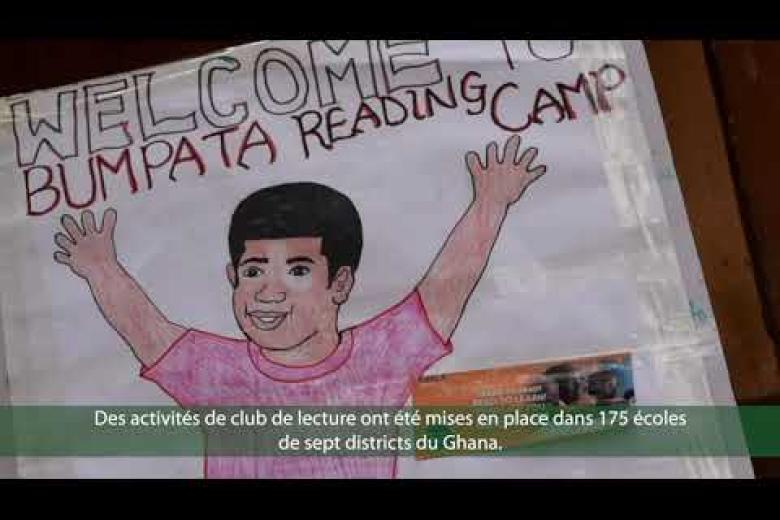Ghana: World Vision wins UNESCO-Japan Prize on Education for Sustainable Development
Video courtesy of UNESCO
-
World Vision was chosen for its “Unlock Literacy Project (UL)" in Ghana, which promotes a holistic approach to the development of literacy focusing on critical thinking, a core competency for sustainability.
The project aims to empower children at the primary level to think critically about local issues and take actions, as well as to make reading exciting through multi-lingual education. Going beyond traditional literacy approaches, the project was rewarded for its action-oriented, peer-to-peer approach to learning involving whole communities. It also carries potential for further scaling up nationally through cooperation with formal education.
World Vision implements the UL Project in 210 schools and communities in eight Districts across five regions in Ghana. The project reaches 1,575 teachers and about 59,790 children. The UL model is built upon mother tongue-based multilingual education. Children learn to read fast and better when they start learning to read in their mother tongue, and it also helps them learning a second language faster. Reading club activities have been implemented in 175 schools in seven districts across Ghana.
Teachers and facilitators engage in in-depth conversations with children in every read-aloud session. Using the stories selected from children’s literature, the teachers encourage children to achieve a deeper understanding of meaning that goes beyond the printed text on the pages. It allows children to link the themes of the stories to their day-to-day life. After progressing through reading clubs, children are assisted to join kids clubs where they participate in the Child Parliament, a replica of the national parliament to table issues affecting welfare of children in their community.
Through the Child Parliament and Community Voice Action programme which aims to raise their voices on local issues through campaigns, children learn critical skills to be more proactive in their homes, schools and society, learn about their rights and protect themselves and their friends. Children then become able to influence decision makers, participate in community and school activities with a sense of both duty and freedom, and even build resilience and teach others to value and respect others.
